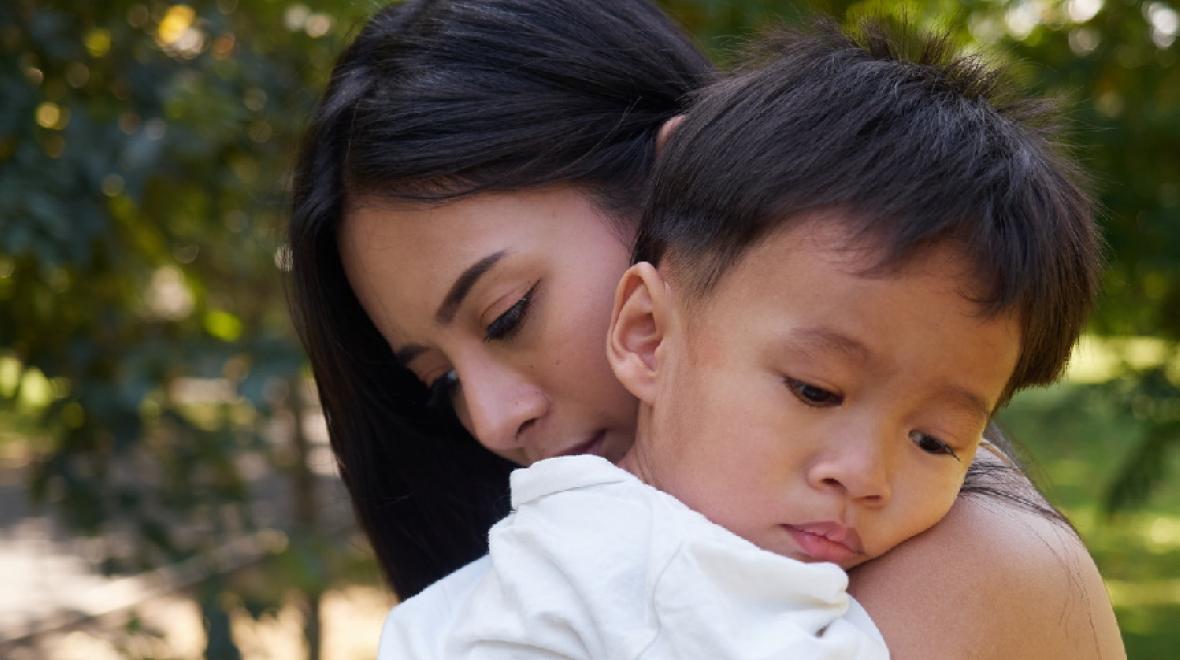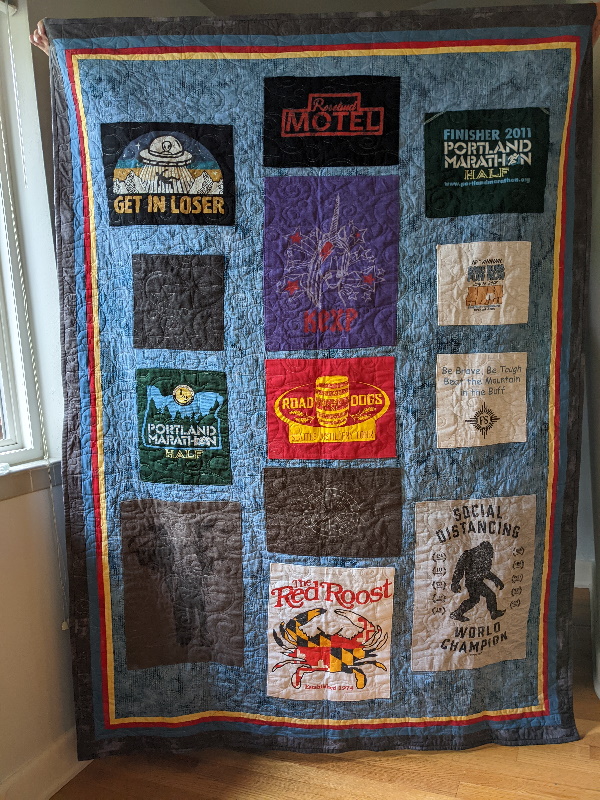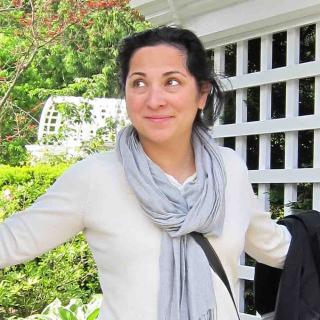
My husband Ken died of brain cancer in May 2021, and my family just recently observed his one-year “deathiversary.” Grief and loss of that magnitude are impossible to fully prepare for, but I knew that my children (ages 8 and 11 at the time) and I would need “something” in addition to the much-appreciated love and help of our family and friends. We had crossed into a new realm of the bereaved after our devastating loss.
I needed that first solid grip to hold onto, to begin the climb upward — toward what is possible and what it feels like to live again. For our own well-being, we needed the therapeutic support of people and professionals who have traversed this path.
Figuring all of this out before my husband passed was too scary and doing it right after his death was overwhelming. I flailed for a while, but eventually, I found my way. With a year’s hindsight, I wanted to compile some initial steps and resources for fellow grieving parents who may be overtasked and carrying the weight of the world on their shoulders.
Find a counselor
First, I would suggest finding counselors (particularly grief counselors) for you and your kids. Processing and integrating the complex feelings around loss is beneficial to supporting mental health sooner and to stabilizing relationships later. Some therapy practices in the Seattle Metro area are waitlisting, but if you have mental health coverage in a network, check nearby states. My counselor is located in Oregon but has a license to practice in Washington as well. Many counselors now offer telehealth video appointments.
Create an important keepsake
We found many ways to honor my husband and his memory. One of the most meaningful tributes I facilitated for my kids was having a quilt made for each of them using fabric from their dad’s favorite T-shirts. I wanted the kids to have something tangible of his that they could snuggle up with whenever they felt like it.

Join a widow(er) social group
Like many people, I have found solace in the wisdom and experiences of others. I joined a Seattle-based widow(er) social group. This group helped me to reestablish normalcy and to talk and emote openly about my family and what life is really like. One of the organizers named Annie (a widow and mom of a 10-year-old daughter) shared, “I intentionally sought spaces with other young widowed parents. In Club Wid, there's a thriving community of support and camaraderie where we and the kids (even if we aren't directly talking about our losses) feel less alone.”
Connect with grief programs
Safe Crossings via Providence Hospice is a foundation that funds a number of well-run bereavement programs for all types of grieving kids. All programs are free of charge to participating families. The organization also hosts Camp Erin, a summer camp event for kids, and it provides periodic access to professional grief counselors, check-ins and activities commemorating major milestones, and other tools and services through its website. You must be a resident of King County to participate in Safe Crossings programs, but you don’t need to be enrolled in Providence Hospice to access services. Even if you live outside of King County, you’ll find great references and resources on the website.
Explore virtual and international groups
The international organization Soaring Spirits offers incredible virtual and in-person programming, especially for the newly widowed. There are additional regional widow groups for social meetups, such as PNW Widows Meet Up, which is a group for those who have been widowed in the Pacific Northwest region.
Support services related to cancer
For families that are going through active treatment or loss due to cancer, Cancer Pathways (formerly Gilda’s Club Seattle)has many great programs, including adult and parent support groups that meet on a weekly or bi-monthly basis; support groups specifically for teens; and Camp Sparkle, a summer day camp program for Puget Sound–area kids.
Books and podcasts
There are quite a few grief-related books and podcasts available. “Hot Young Widows Club” is a wry and empowering book by Nora McInerny that I found helpful. The title is a bit shocking, but it prepared me to accept the “widow” identity and to imagine what life might look like for a 47-year-old mom of two school-age kids. You might also want to listen to McInerny’s TED Talks and her podcast, “Terrible, Thanks for Asking.”
“The Widowed Parent Podcast” by Jenny Lisk helped me see the landscape of what grief would be like for my kids. It gave me ideas about how to help them as they grow older. The guests and featured experts are incredibly insightful. She provides excellent information and resources related to parenting grieving children.
I found the workbook “How to Carry What Can’t Be Fixed” by Megan Devine very helpful. It’s like a journal, activity book and informative resource all rolled into one.
Grief is not something to “get over” — it’s something we’ll always carry. Ken’s absence is with us constantly, and at the same time, we are moving forward. Some days, the kids and I integrate and carry the weight of our loss well. And some days (rarer now) it’s everything we can do to handle it. Maybe that’s why grief is so scary: It seems like it can’t be managed and will block out the sun from ever reaching us again. But for me, on the flip side of grief is love, which reveals the deep significance of our connection. All of these things and ideas have enabled me to function and evolve in the world as a widow, and as a mother of children who have lost their father. I hope that some of these ideas will help other widowed parents.
You might also want to read: |











